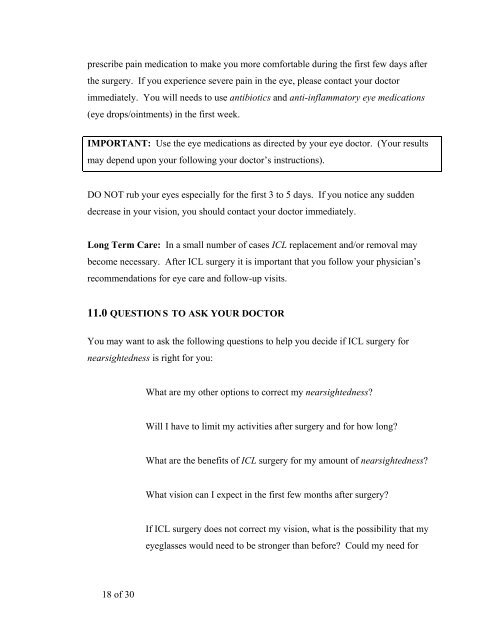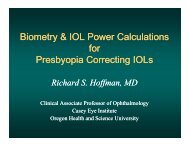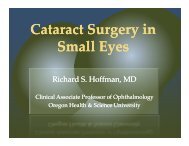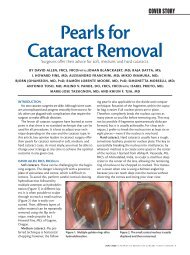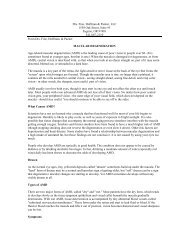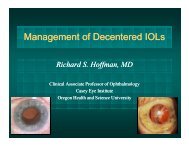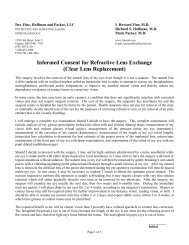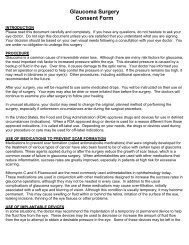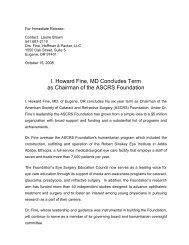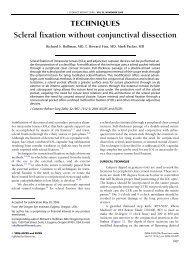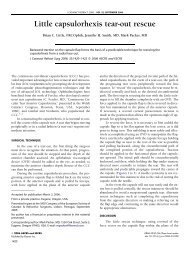ICL Patient Information Booklet
ICL Patient Information Booklet
ICL Patient Information Booklet
You also want an ePaper? Increase the reach of your titles
YUMPU automatically turns print PDFs into web optimized ePapers that Google loves.
prescribe pain medication to make you more comfortable during the first few days after<br />
the surgery. If you experience severe pain in the eye, please contact your doctor<br />
immediately. You will needs to use antibiotics and anti-inflammatory eye medications<br />
(eye drops/ointments) in the first week.<br />
IMPORTANT: Use the eye medications as directed by your eye doctor. (Your results<br />
may depend upon your following your doctor’s instructions).<br />
DO NOT rub your eyes especially for the first 3 to 5 days. If you notice any sudden<br />
decrease in your vision, you should contact your doctor immediately.<br />
Long Term Care: In a small number of cases <strong>ICL</strong> replacement and/or removal may<br />
become necessary. After <strong>ICL</strong> surgery it is important that you follow your physician’s<br />
recommendations for eye care and follow-up visits.<br />
11.0 QUESTION S TO ASK YOUR DOCTOR<br />
You may want to ask the following questions to help you decide if <strong>ICL</strong> surgery for<br />
nearsightedness is right for you:<br />
18 of 30<br />
What are my other options to correct my nearsightedness?<br />
Will I have to limit my activities after surgery and for how long?<br />
What are the benefits of <strong>ICL</strong> surgery for my amount of nearsightedness?<br />
What vision can I expect in the first few months after surgery?<br />
If <strong>ICL</strong> surgery does not correct my vision, what is the possibility that my<br />
eyeglasses would need to be stronger than before? Could my need for


